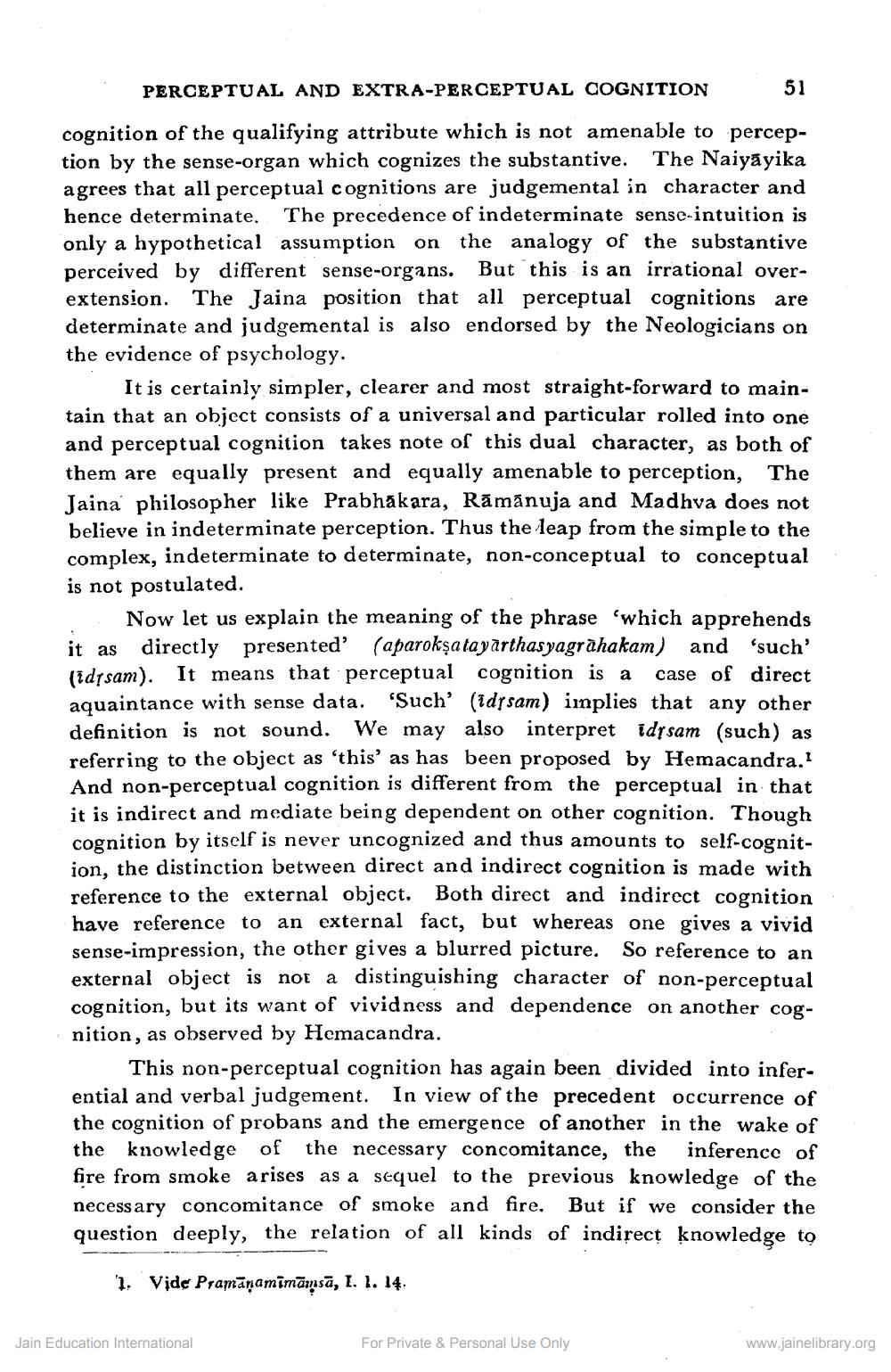________________
PERCEPTUAL AND EXTRA-PERCEPTUAL COGNITION
5)
cognition of the qualifying attribute which is not amenable to perception by the sense-organ which cognizes the substantive. The Naiya yika agrees that all perceptual cognitions are judgemental in character and hence determinate. The precedence of indeterminate sense intuition is only a hypothetical assumption on the analogy of the substantive perceived by different sense-organs. But this is an irrational overextension. The Jaina position that all perceptual cognitions are determinate and judgemental is also endorsed by the Neologicians on the evidence of psychology.
It is certainly simpler, clearer and most straight-forward to maintain that an object consists of a universal and particular rolled into one and perceptual cognition takes note of this dual character, as both of them are equally present and equally amenable to perception, The Jaina philosopher like Prabhakara, Rāmānuja and Madhva does not believe in indeterminate perception. Thus the leap from the simple to the complex, indeterminate to determinate, non-conceptual to conceptual is not postulated.
Now let us explain the meaning of the phrase "which apprehends it as directly presented' (aparokşa tayarthas yagrāhakam) and 'such' (idssam). It means that perceptual cognition is a case of direct aquaintance with sense data. "Such' (idysam) implies that any other definition is not sound. We may also interpret idrsam (such) as referring to the object as 'this' as has been proposed by Hemacandra." And non-perceptual cognition is different from the perceptual in that it is indirect and mediate being dependent on other cognition. Though cognition by itself is never uncognized and thus amounts to self-cognition, the distinction between direct and indirect cognition is made with reference to the external object. Both direct and indirect cognition have reference to an external fact, but whereas one gives a vivid sense-impression, the other gives a blurred picture. So reference to an external object is not a distinguishing character of non-perceptual cognition, but its want of vividness and dependence on another cognition, as observed by Hemacandra.
This non-perceptual cognition has again been divided into inferential and verbal judgement. In view of the precedent occurrence of the cognition of probans and the emergence of another in the wake of the knowledge of the necessary concomitance, the inference of fire from smoke arises as a sequel to the previous knowledge of the necessary concomitance of smoke and fire. But if we consider the question deeply, the relation of all kinds of indirect knowledge to
'1. Vide Pramānamimāmsā, I. 1. 14.
Jain Education International
For Private & Personal Use Only
www.jainelibrary.org




